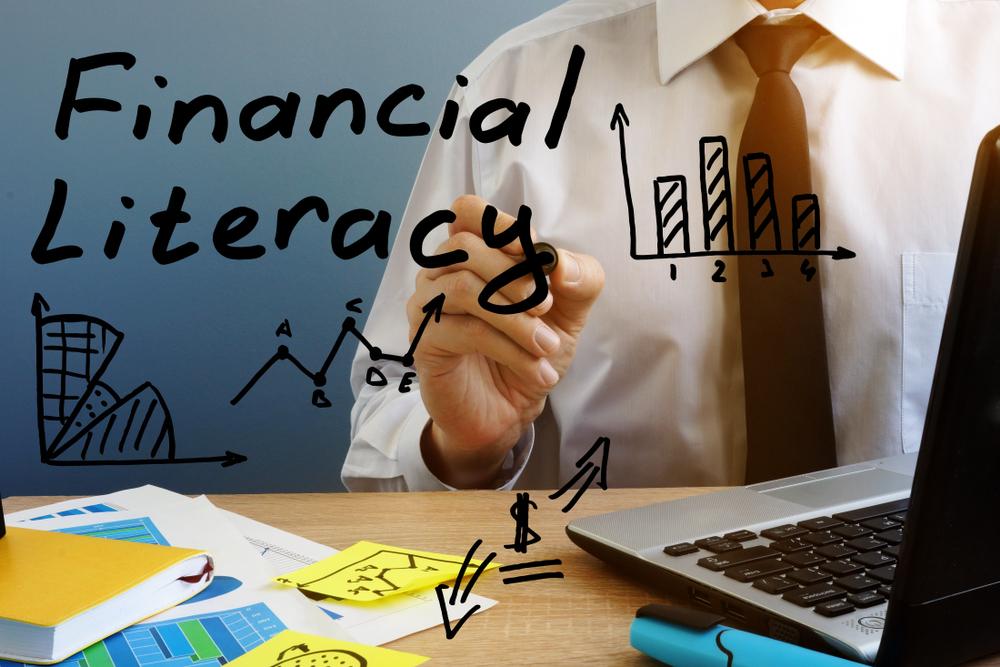
Financial literacy enables you to make better financial decisions and avoid fraud. In today’s world, knowing about money management, income, savings, and investment is crucial.
This knowledge arms you with the right financial information and the ability to know, monitor, and enhance your financial resources. By leveraging your finances, you can boost your life today and, in the future, too.
To learn more about the aspects of financial literacy and its importance, read on.
Financial literacy is the understanding of financial skills and sources, including financial management, budgeting, lending, taxation and investments. Having this information helps you make better choices, which positively impacts on your financial well-being.
Today, evolved financial resources and products are widespread. Most consumers depend on credit cards, loans, mortgages, etc., for purchasing items. Investments and insurance solutions have also found their place in the current scenario, making it crucial for you to understand and use these resources effectively.
Professionals should have a basic knowledge of concepts like compound interests or the time value of money. You must also know the management of wages or household budgeting, paying off debts, evaluating credit cards and loans, etc. The lack of financial literacy can be lethal for stable and long-term financial success.
Also Read: Why Financial Literacy Is Important For Youth
According to the S&P Ratings Services Global FinLit Survey, only 33% of adults worldwide have acceptable levels of financial literacy. This statistic sheds light on the importance of financial literacy on a national and global level.
To understand the challenges you can face when you don’t have enough information, consider these questions:
Financial literacy helps you save enough and avoid these challenges. Most millennials, who incidentally make up the largest share of the workforce, are unprepared for a financial crisis. The job loss due to COVID and lack of financial literacy have led to a rise in mortgage foreclosures too.
In such a scenario, being smart about your finances can make a huge difference. Financial literacy can also help protect you from fraud, which is, unfortunately, becoming more common.
There are five trends that demonstrate the importance of making informed and productive decisions about finances:
There are various options to invest and save today. They offer varying interest rates and tenures, forcing consumers to make decisions they are not adequately informed to make. Complex financial instruments add to the decision-making pressure and impact investments in assets.
The financial environment is now a global market, with many participants and even more factors to influence it. Financial markets tend to exhibit levels of volatility historically unseen. Naturally, retail investors find creating and implementing a stable path difficult.
There are so many options – brokerage firms, banks, NBFCs, insurance firms, credit unions, credit card companies, financial planners, mortgage companies, and other financial service companies – all vying for assets. This creates more confusion for the consumer.
In the past, people relied on pensions to support them during retirement. Professionals managed pension funds and the financial burden was on the organisations that sponsored them. The working person did not contribute to his own plan and was almost never made aware of the investments or status held by the pension.
Today, pensions are rare. Employees are expected to participate in plans, make the right financial choices, and decide how much to contribute to retirement savings. Moreover, owing to the longer lifespans supported by progress in the medical world, financial planning for retirement has become crucial.
One way that Fibe (Formerly EarlySalary) has helped power financial wellness for corporate India is by providing financial training to the workforce and helping them face the challenges that the future holds.
Being financially literate brings a number of benefits to the fore. Here are some of the benefits that you should know:
Here are some aspects of financial literacy that you should know:
Budgeting requires balancing four components, including spending, investment, savings, and credit. Creating a sound budget results in financial prosperity and stability.
Borrowing is another essential component as the number of credit options has increased exponentially. As such, it is crucial to understand interest rates, tenures and loan structures.
Investing helps you achieve financial growth; however, you need to make the right decisions. For this, you will need to learn about interest rates, yields, diversification and risk mitigation.
Most of your income, investments, and spending attract taxes. Thus, gaining knowledge about different forms of taxation is also an essential component of financial literacy.
It is not easy to learn how to be financially literate, but once mastered, it can ease life’s burdens tremendously. Managing your funds also means knowing when to borrow and how to borrow smartly. With Fibe, you can get Instant Personal Loans of up to ₹5 lacs without any hassle. Download the Fibe Personal Loan App or register on the website to start the journey!
The main impact of financial literacy is that it helps people make wiser decisions. Having this knowledge helps achieve short-term and long-term goals, be it children’s education, marriage, buying a home, or investing.
By starting early, students can understand complex financial products and terms. This helps them become responsible adults who can handle credit, insurance, budgeting and overall money management better.
Some examples of financial literacy include:
The 5 main principles of financial literacy revolve around the following:
Yes, financial literacy is a core component of the essential life skills you need. Having a handle on your personal finances helps you achieve your objectives and become self-sufficient.
References:
https://www.mdpi.com/1911-8074/14/3/118#:~:text=Analyzing%20data%20from%20European%20countries,42%25%20(Klapper%20et%20al.https://corporatefinanceinstitute.com/resources/management/financial-literacy/